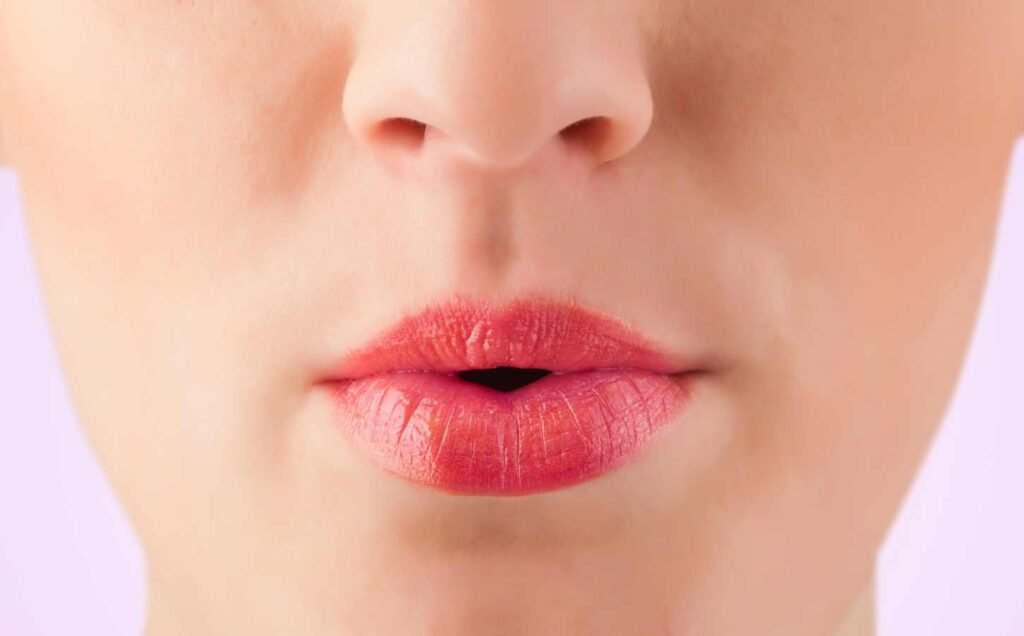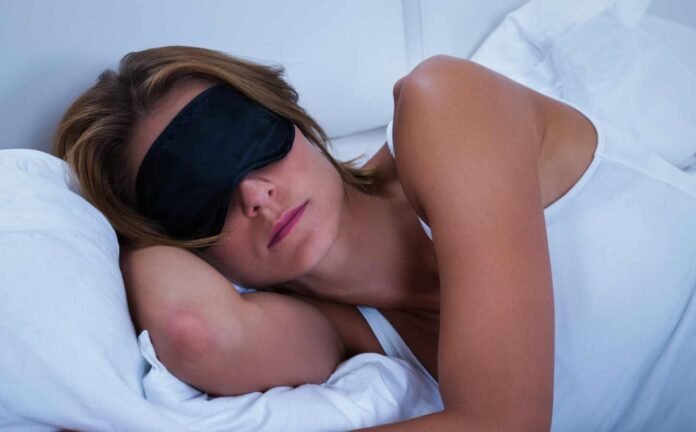Sleep masks can significantly enhance sleep quality by blocking out light, but users should be aware of potential side effects.
Sleep masks are a popular accessory for those seeking improved sleep quality by blocking out light and creating a more conducive sleeping environment. While many people find that these masks enhance their ability to fall asleep, there can be sleep mask side effects that users should be aware of.
Some individuals report discomfort or irritation, especially if the mask is too tight or made from materials that do not allow the skin to breathe. Others might experience pressure on the eyes or headaches, which can disrupt sleep rather than improve it.
Additionally, if a sleep mask is worn consistently without proper hygiene, it may lead to skin issues or allergies. Being informed about these potential side effects can help individuals make better choices regarding their sleep accessories and ultimately enhance their overall sleep experience.
Understanding Sleep Masks
Sleep masks play a significant role in promoting better quality sleep by blocking out light and creating a conducive sleep environment. They are available in various types and can enhance the sleeping experience by facilitating an uninterrupted sleep cycle.
Types of Sleep Masks
Several types of sleep masks cater to different preferences and needs. Common materials include cotton, which is breathable and comfortable for prolonged wear. Some masks feature gel padding for additional comfort and cooling effects, making them suitable for warm climates.
Others might include specialized designs, like those with built-in speakers for soothing sounds. Certain models incorporate adjustable straps, ensuring a snug yet comfortable fit. Additionally, some masks are even contoured to accommodate the face’s natural shape, minimizing pressure on the eyes while allowing for side-sleeping.
If you’re thinking of investing in a Sleep Mask, here’s a link to one I recommend.
How Sleep Masks Improve Sleep
Sleep masks improve sleep by blocking artificial light, which can interfere with melatonin production. Melatonin is a hormone essential for regulating the sleep-wake cycle and encouraging REM sleep. By eliminating distractions from surroundings, sleep masks help create a controlled environment, similar to blackout curtains.
A well-designed mask enhances comfort, allowing users to relax without the disruptive influence of ambient light. With better sleep quality comes improved focus and mood during waking hours. Many find that using a sleep mask leads to more restful nights and easier transitions into deeper sleep stages.
- No pressure on eyes, eye space is wider and deeper than other flat eye mask (Silk eye mask will oppress eyes)
- Unique heat-bonded technology instead of glue, sturdy and no easy to fall apart.
- Top quality fiber fabric never stain bed sheets or pillows. Memory foam makes you feel comfortable.
- Fit all size head circumference, fully adjustable buckle strap, easy to adjust and not catch hair.
- Effectively blocking lights and allows your eyes freely blinking. Ideal for meditation, Yoga, travel, napping, insomnia.
This page contains affiliate links, which means we may earn a small commission should you buy after clicking on one, or more of those links. At no extra cost to you.
Potential Side Effects of Sleep Masks
Sleep masks can enhance restful sleep but may also lead to certain side effects. Users should be aware of skin-related issues and potential impacts on the eyes.
Skin Irritation and Health Concerns
Wearing a sleep mask can cause skin irritation for some individuals. Frequent contact with the mask material may result in rashes, redness, and itching. People with sensitive skin should choose masks made from breathable fabrics like cotton to reduce discomfort.
Acne or dermatitis may develop due to accumulated moisture or oils on the skin. Proper hygiene is essential; washing the mask regularly helps minimize skin issues. Users should also monitor their skin for any adverse reactions, as materials like silk or synthetic fibers can contribute to irritation for certain skin types.
Effects on the Eyes
Prolonged use of sleep masks might affect eye health. While they aim to block light for better sleep, tight-fitting masks can cause discomfort or pressure on the eyes. This may lead to redness or irritation over time.
Some individuals may experience dryness or tearing due to restricted airflow. It’s important to select masks with a comfortable fit and breathable material to avoid obstructing eye moisture. If discomfort persists, they should consider adjusting the mask or discontinuing use altogether.
CPAP Therapy and Associated Mask Issues
CPAP therapy is a crucial treatment for individuals with obstructive sleep apnea. While effective, it can present challenges related to mask usage and side effects that users should be aware of.
Understanding CPAP and Its Importance
Continuous Positive Airway Pressure (CPAP) therapy delivers pressurized air through a mask to keep airways open during sleep. This treatment is critical for those with obstructive sleep apnea, a condition where breathing repeatedly stops and starts. Proper air pressure helps prevent respiratory interruptions, improving sleep quality and overall health.
Those using CPAP therapy often rely on different types of masks, including nasal masks and full-face masks. Each type has unique advantages and should be selected based on personal comfort and necessity.
Common CPAP Side Effects
CPAP therapy can lead to various side effects, some of which may discourage users. Common issues include:
- Mask Leak: Improper fit can cause air leaks, reducing effectiveness.
- Dry Mouth and Nose: Pressurized air may lead to dryness, resulting in discomfort.
- Nosebleeds: Dry nasal passages can cause bleeding, particularly in some users.
- Skin Sores: Prolonged mask use may irritate the skin, especially if not cleaned regularly.
These side effects can often be mitigated by adjusting mask fit, utilizing humidifiers, or incorporating mask liners.
Impact of CPAP Mask on Skin
The CPAP mask can affect the skin in various ways, particularly if not used or maintained correctly. Common skin-related issues include:
- Sores: Pressure from the mask may lead to sores on the bridge of the nose or cheek areas.
- Claustrophobia: Some individuals may feel restricted and anxious while wearing a mask, impacting their ability to use CPAP effectively.
- Cleaning Practices: Regular cleaning of the mask is essential to prevent skin irritation and infections.
Choosing the right mask fit and hygiene practices are essential for minimizing these problems and ensuring a more comfortable therapy experience.
Addressing Side Effects and Enhancing Comfort
Managing the side effects of sleep masks involves understanding pressure settings and employing various comfort-enhancing strategies. These adjustments can significantly improve the user’s experience and ensure effective therapy.
Optimizing CPAP Pressure Settings
Correctly adjusting CPAP pressure settings is crucial for comfort. High pressure may lead to issues like aerophagia or bloating, causing discomfort during use. Users can utilize a ramp feature, which gradually increases pressure to minimize sudden discomfort.
Adjusting the pressure to a level that maintains effective airflow while reducing discomfort can help. Nasal pillows might be an option that provides a better fit for some, allowing for effective therapy with less pressure. Users should consult their healthcare provider to find the ideal settings that balance efficacy and comfort.
Additional Comfort Strategies for Sleep Masks
Enhancing comfort can be achieved through various strategies. Using a mask liner can provide additional cushioning, reducing pressure sores. Additionally, incorporating a chin strap helps to keep the mask securely in place, limiting air leaks.
Heated humidifiers and heated tubing can also improve overall comfort. They reduce dryness and irritation, making the experience more pleasant. Users might consider applying moisturizers or barrier creams to prevent skin irritation caused by the mask.
Experimenting with different CPAP accessories, such as varying mask types or thicknesses, can also improve comfort. Ensuring that the mask fits properly is key; an ill-fitting mask can lead to discomfort and ineffective therapy.
Lifestyle and Environmental Modifications
Adjusting lifestyle and environmental factors can significantly influence sleep quality. This includes behavioral changes and optimizing the bedroom environment, which are crucial for those using sleep masks and experiencing side effects.
Incorporating Behavioral Changes
Adopting behavioral changes can enhance sleep quality. Reducing alcohol and caffeine intake, especially before bedtime, can facilitate relaxation and better sleep.
Incorporating a consistent sleep schedule promotes regular sleep patterns. Individuals should aim for the same bedtime and waking time daily.
Additionally, managing stress through mindfulness or relaxation techniques can improve mood and focus, potentially minimizing insomnia symptoms. Individuals may also consult a healthcare provider for tailored advice, especially if medications contribute to sleep disturbances.
Awareness of allergies that may exacerbate discomfort from sleep masks is vital. This can include choosing hypoallergenic materials to avoid irritation.
Enhancing Bedroom Environment
Optimizing the bedroom environment plays a crucial role in sleep quality. Individuals should ensure a cool, dark, and quiet sleeping area to maximize restfulness. Blackout curtains and sound machines can help in achieving this atmosphere.
Comfortable bedding is essential; quality mattresses and pillows affect how one feels while sleeping.
Deciding on the right sleep mask involves careful consideration of material, weight, and fit. For example, individuals can select masks made of breathable fabrics to prevent overheating.
In addition, controlling allergens by keeping the bedroom clean and free of dust can reduce sneezing and discomfort. Taking these steps can create a conducive environment for sleep, regardless of any side effects experienced with sleep masks.
Prevention and Care for CPAP and Sleep Mask Users
Proper care and proactive measures can significantly enhance the experience of CPAP and sleep mask users. Addressing cleaning, maintenance, and airflow management is essential for minimizing discomfort and improving sleep quality.
Routine Cleaning and Maintenance
Regular cleaning of CPAP equipment and sleep masks is crucial. Daily, masks should be washed with mild soap and water to prevent skin irritations. This helps remove oils and bacteria that accumulate and can cause issues like crusting or rashes.
Weekly cleaning is equally important. CPAP tubing and humidifier chambers require thorough cleaning with a 1:1 mixture of white vinegar and water. Ensure all components are rinsed thoroughly and air-dried to avoid residue buildup.
Barrier creams can also protect the skin from irritation caused by mask contact. Users may want to consult a dermatologist for recommendations on suitable products. Maintaining a clean environment helps reduce headaches and discomfort related to using CPAP devices.
Managing Air Flow and Humidity
Managing airflow and humidity settings on CPAP or APAP machines is vital for comfort. High humidity levels can lead to congestion and a dry nose, while low humidity might exacerbate aerophagia or nasal irritation.
Users should adjust their machine settings according to their comfort levels. Automatic Positive Airway Pressure (APAP) devices can automatically regulate airflow based on the user’s needs.
In addition, nasal sprays may be beneficial for those experiencing dryness or irritation.
Mask leaks can often be minimized by ensuring the mask fits correctly and checking for worn parts. Regular adjustments can lead to improved comfort throughout the night.
Conclusion: Sleep Mask Side Effects
Using sleep masks can enhance sleep quality for many individuals. By blocking light effectively, these masks contribute to a more restful environment.
Potential side effects should not be overlooked. Some users may experience pressure on the eyes or discomfort, especially if the mask does not fit well.
It’s advisable to consult a healthcare provider if any issues arise. They can provide guidance on selecting the right type of mask to minimize adverse reactions.
In summary, while sleep masks can be effective for improving sleep, awareness of their side effects is crucial for users. Balance comfort with effectiveness to achieve optimal sleep conditions.
Frequently Asked Questions
This section addresses common inquiries related to sleep mask usage, specifically focusing on potential side effects and benefits. Each question highlights concerns users might have regarding the impact of sleep masks on their health and comfort.
Can wearing a sleep mask lead to wrinkles?
Wearing a sleep mask tightly against the skin can create pressure points, potentially leading to the formation of fine lines over time. Users should opt for masks made from soft, breathable materials to minimize this risk.
Are there any benefits to using a gel eye mask?
Gel eye masks can provide soothing relief for tired eyes. They often contain cooling properties that may reduce puffiness and inflammation, making them a valuable addition for those seeking relaxation.
Is daily use of a sleep mask recommended for healthy sleep?
Daily use of a sleep mask can enhance the sleep environment by blocking out light. Individuals who struggle with light sensitivity may find regular use beneficial for improving sleep quality.
Why might sleep masks cause dry eyes?
Some sleep masks may inadvertently restrict airflow, leading to dry eyes during the night. This can be particularly true for those who sleep with their mouth open, as it affects moisture retention.
Could a sleep mask contribute to puffiness around the eyes?
Improperly fitting masks or those that apply too much pressure can contribute to fluid retention, resulting in puffiness. Choosing a well-fitted mask can help prevent this issue.
How can one address vision blurriness after using a sleep mask?
Vision blurriness may occur if the mask shifts or presses against the eyes. Adjusting the fit or choosing a mask designed for comfort can help alleviate this problem.
MaryRuth Organics Sleep Gummies Without Melatonin Review: Do They Work?

These gummies are designed to promote relaxation and support sleep quality for adults. Unlike many other sleep aids, they don’t contain melatonin, so you won’t wake up feeling groggy or drowsy.
Continue reading: MaryRuth Organics Sleep Gummies Without Melatonin
Discover the Tongue Trick for Better Sleep: The U.S. Marine’s Secret

This tongue trick is designed to help you fall asleep in just two minutes by stimulating a specific nerve in your tongue, known as the “sleep nerve,” to promote relaxation and better sleep.
Continue reading: Discover the Tongue Trick for Better Sleep





